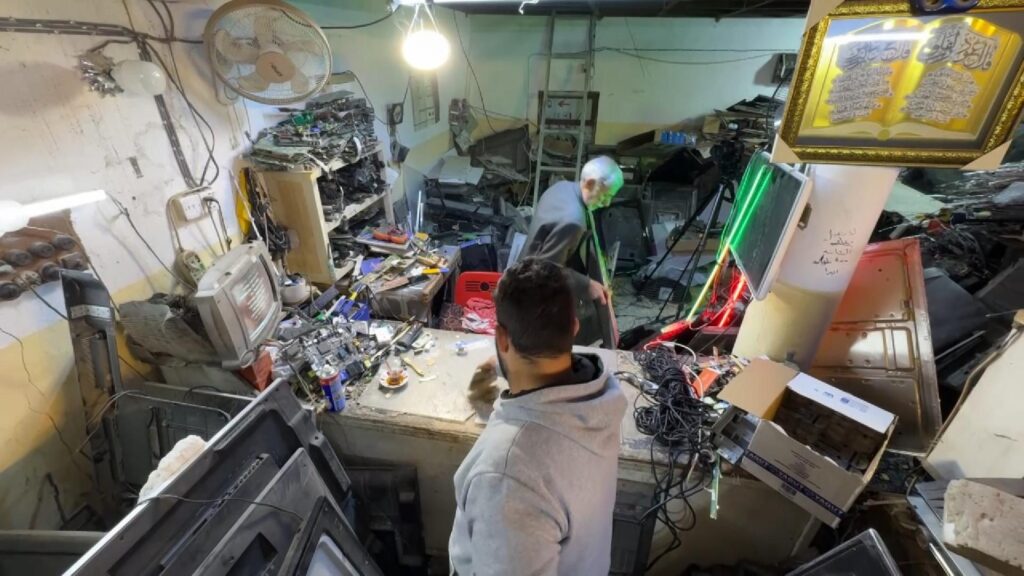Bringing football home to Iraq could represent a return to global stage

So there have been only two World Cup qualifiers in Iraq this century. In 2011, the Lions of Mesopotamia, who defied the odds four years earlier to win the Asian Cup, hosted Singapore in the northern city of Erbil, a game that was disrupted by a power cut. Eight years later, Hong Kong came to the southern port of Basra, and that has been it.
It was set to change. In March 2022, Baghdad was given the green light by Fifa to host a vital qualifier against the United Arab Emirates. Days beforehand, however, a missile attack on Erbil, which emanated from Iran, led the world governing body and the AFC to change their minds and the venue, citing security concerns. “Football is played all over the country with no issues whatsoever,” the veteran Iraq striker Ahmed Yasin posted on social media. “This ban makes no sense. How much longer do we have to wait?”
Maybe not too much longer. The Gulf Cup was presented as a chance to show that Iraq was ready. The prime minister, Mohammed al-Sudani, took personal interest in the tournament, both before and during, there was investment in facilities and thousands of visitors from the region poured into Basra and Fifa’s president, Gianni Infantino, was present.
Off the pitch everything had gone well until the final. Hours before kick-off at Basra International Stadium, thousands of fans without tickets tried to get in and the result was a stampede that killed up to four people and injured 60. It was a tragedy for those affected and a setback for the hopes of the whole country.
There is still an expectation, though, that the national team, which appeared at the 1986 World Cup, will return home soon, especially following the recent rapprochement between Iran and Saudi Arabia. The region’s two major powers and rivals suddenly announced in March that they were restoring diplomatic ties that had been broken in 2016. There are likely to be long-reaching consequences of the Beijing meeting but, in football terms, it is an injection of stability that can only help Baghdad, where Iranian influence has grown since the US-led invasion of 2003, to the disquiet of Saudi Arabia.
It is not only Iraq. Syria and Yemen are two more countries who have forgotten what it is like to play at home – though Syria still came within a playoff of reaching the the Russia 2018 World Cup and Yemen reached the Asian Cup a year later.
There is speculation Syria will be soon be readmitted into the Arab League, following a 2011 suspension from the regional body in response to the crackdown on pro-democracy protests by the dictator, Bashar al-Assad, which led to years of civil war and misery. There is a growing acceptance, though, that the Iran-backed leader is not going anywhere. This month the foreign minister of Saudi Arabia, a driving force behind Syria’s isolation, went to Damascus to meet Assad.
after newsletter promotion
In Yemen, too, Riyadh and Tehran had been on opposite sides of the civil war that started in 2015 but now Saudi officials have met the leaders of the Houthi rebels –supported by Tehran – and there was a prisoner swap in April. The United Nations envoy to Yemen said it was the nearest the country has been to peace in the eight years since the conflict started.
World Cup qualifiers taking place in Damascus and Sana’a may still be some way off but Iraqi fans are waiting for Fifa to say yes. It would make a huge difference in terms of the 2026 World Cup.
Never having home advantage makes it tougher for Iraq to challenge Japan, South Korea, Australia, Iran and Saudi Arabia when Asia has had only four automatic spots. With the continent doubling its representation for 2026 and Iraq possibly coming home, a return to the global stage is more than possible.

